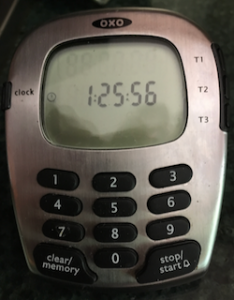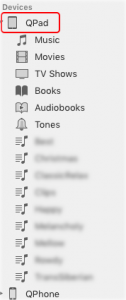I saw another query about ‘reading list recommendations’ (e.g. as an addition to Millennials, Goldfish, Other Training Misconceptions ;), and I thought I’d weigh in, with a different spin. What qualifies what books should you read? Maybe your level of expertise? So, here is a reading list for what books should you read depending on where you are as a designer.
Note, this is a relatively personal list, and not the mainstream ID texts. It’s not Gagné, Brown & Green, Dick & Carey, or even Horton. These are books that either get you going without those, or supplement then once you are going. And they’re ones I know, and I can’t read everything!
Beginning (e.g. the accidental instructional designer):
Cammy Bean’s The Accidental Instructional Designer. Now, I think the fact that this book needs to exist is kind of an indictment of our field. Do we have accidental surgeons? Not to the extent we prepare for them! Still, it’s a reality, and Cammy’s done the field a real service in this supremely practical and accessible book.
Michael Allen’s Guide to eLearning. Michael’s got the scientific credibility, the practical experience, a commitment to making things right, and a real knack for simplifying things. This book, with it’s SAM and CCAF framework, provides a very good go-to-whoa process for designing learning experiences what will work.
Practicing Designer:
Julie Dirksen’s Design for How People Learn is a really accessible introduction to learning science, boiling it down into practical terms as a process for design. With great illustrations, it’s an easy but important read.
Donald Norman’s Design of Everyday Things is pretty much key reading for anyone who designs for people. (OK, so I’m biased, because he was my Ph.D. adviser, but I’m not the only one who says so.) Not specific to learning, but one of those rare books that is pretty much guaranteed to change the way you look at the world.
Going deeper:
Brown, Roediger, & McDaniel’s Make it Stick. 10 points from learning science about what works.
Ericsson’s Peak, a book about what makes real expertise, with a focus on the nuances of deliberate practice.
Patti Shank’s new Make it Learnable series gets into specifics on learning design. Comprehensive and yet accessible.
Ruth Clark’s eLearning & The Science of Instruction (with Dick Mayer) and/or Efficiency in Learning with Sweller & Nguyen).
Of course, there are separate topics:
Mobile: my own Designing mLearning and anything by Chad Udell (e.g. Learning Everywhere)
Games: my own Engaging Learning and anything game from Karl Kapp (e.g. the new book with Sharon Boller, Play to Learn).
Realities: Koreen Pagano’s Immersive Learning, and perhaps Kapp & O’Driscoll’s Learning in 3D as a foundation.
Performance Support: Allison Rossett’s Job Aids & Performance Support and Gottfredson & Mosher’s Innovative Performance Support.
Social: Conner & Bingham’s The New Social Learning and Jane Bozarth’s Social Media for Trainers.
Going Broader:
Informal: Jay Cross’ Informal Learning. Talking about the rest of learning besides formal.
Performance Ecosystem: Marc Rosenberg’s Beyond eLearning (the start), and/or my Revolutionize Learning & Development. About L&D strategy; going beyond just courses to meet the real needs of the org.
Going Really Deep (if you really want to geek out on learning and cognitive science):
Daniel Kahnemann’s Thinking Fast and Slow about how our brains don’t work logically. Or the behavioral economics stuff.
Andy Clark’s Being There about the newer views on cognition including situated cognition.
Of course, there’re lots more, depending on whether you’re interested in assessment, evaluation, content, or more. But this is my personal and idiosyncratic set of recommendations. There are other people I’d point you to, too, but this is the suite of books you can, and should, get your mitts on. Now, what’s on your list?



